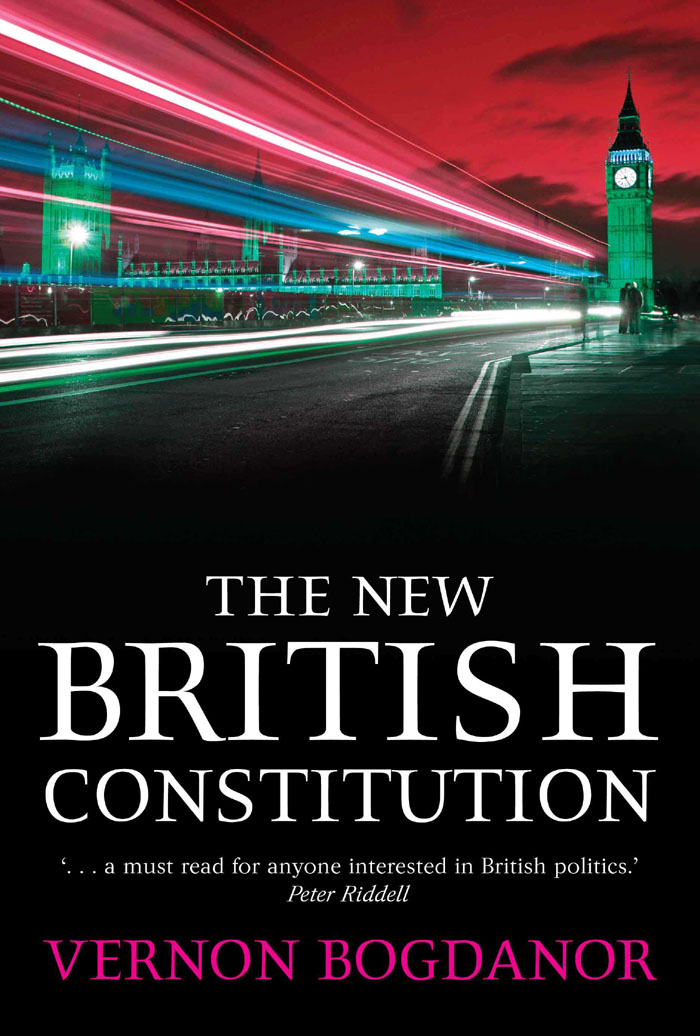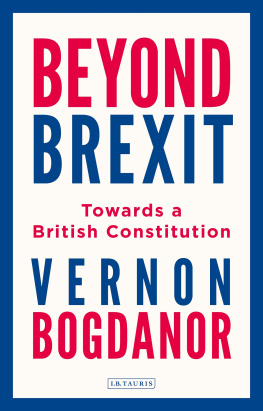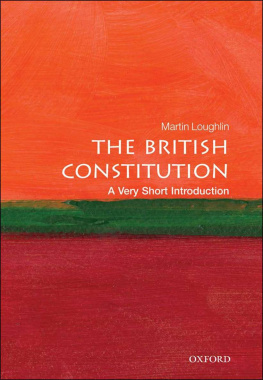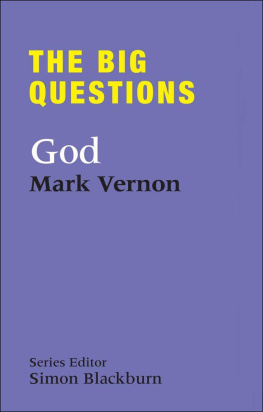Vernon Bogdanor - The New British Constitution
Here you can read online Vernon Bogdanor - The New British Constitution full text of the book (entire story) in english for free. Download pdf and epub, get meaning, cover and reviews about this ebook. publisher: Bloomsbury UK, genre: Politics. Description of the work, (preface) as well as reviews are available. Best literature library LitArk.com created for fans of good reading and offers a wide selection of genres:
Romance novel
Science fiction
Adventure
Detective
Science
History
Home and family
Prose
Art
Politics
Computer
Non-fiction
Religion
Business
Children
Humor
Choose a favorite category and find really read worthwhile books. Enjoy immersion in the world of imagination, feel the emotions of the characters or learn something new for yourself, make an fascinating discovery.

- Book:The New British Constitution
- Author:
- Publisher:Bloomsbury UK
- Genre:
- Rating:5 / 5
- Favourites:Add to favourites
- Your mark:
- 100
- 1
- 2
- 3
- 4
- 5
The New British Constitution: summary, description and annotation
We offer to read an annotation, description, summary or preface (depends on what the author of the book "The New British Constitution" wrote himself). If you haven't found the necessary information about the book — write in the comments, we will try to find it.
The New British Constitution — read online for free the complete book (whole text) full work
Below is the text of the book, divided by pages. System saving the place of the last page read, allows you to conveniently read the book "The New British Constitution" online for free, without having to search again every time where you left off. Put a bookmark, and you can go to the page where you finished reading at any time.
Font size:
Interval:
Bookmark:

The last decade has seen radical changes in the way we are governed. Reforms such as the Human Rights Act and devolution have led to the replacement of one constitutional order by another. This book is the first to describe and analyse Britains new constitution, asking why it was that the old system, seemingly hallowed by time, came under challenge, and why it is being replaced.
The Human Rights Act and the devolution legislation have the character of fundamental law. They in practice limit the rights of Westminster as a sovereign parliament, and establish a constitution which is quasi-federal in nature. The old constitution emphasised the sovereignty of Parliament. The new constitution, by contrast, emphasises the separation of powers, both territorially and at the centre of government.
The aim of constitutional reformers has been to improve the quality of government. But the main weakness of the new constitution is that it does little to secure more popular involvement in politics. We are in the process of becoming a constitutional state, but not a popular constitutional state. The next phase of constitutional reform, therefore, is likely to involve the creation of new forms of democratic engagement, so that our constitutional forms come to be more congruent with the social and political forces of the age. The end-point of this piecemeal process might well be a fully codified or written constitution which declares that power stems not from the Queen-in Parliament, but, instead, as in so many constitutions, from We, the People.
The old British constitution was analysed by Bagehot and Dicey. In this book Vernon Bogdanor charts the significance of what is coming to replace it.
Vernon Bogdanor
Professor of Government, Oxford University

Published in North America (US and Canada) by
Hart Publishing
c/o International Specialized Book Services
920 NE 58th Avenue, Suite 300
Portland, OR 97213-3786
USA
Tel: +1 503 287 3093 or toll-free: (1) 800 944 6190
Fax: +1 503 280 8832
E-mail: orders@isbs.com
Website: http://www.isbs.com
Vernon Bogdanor 2009
Vernon Bogdanor has asserted his right under the Copyright, Designs and Patents Act 1988,
to be identified as the author of this work.
All rights reserved. No part of this publication may be reproduced, stored in a retrieval system, or transmitted, in any form or by any means, without the prior permission of Hart Publishing, or as expressly permitted by law or under the terms agreed with the appropriate reprographic rights organisation. Enquiries concerning reproduction which may not be covered by the above should be addressed to Hart Publishing at the address below.
Hart Publishing Ltd, 16C Worcester Place, Oxford, OX1 2JW
Telephone: +44 (0)1865 517530 Fax: +44 (0)1865 510710
E-mail: mail@hartpub.co.uk
Website: http://www.hartpub.co.uk
British Library Cataloguing in Publication Data
Data Available
ISBN: 978-1-84113-149-8 (Hardback)
978-1-84113-671-4 (Paperback)
Typeset by Hope Services, Abingdon
Printed and bound in Great Britain by
TJ International Ltd, Padstow, Cornwall
When we mean to build,
We first survey the plot, then draw the model,
And, when we see the figure of the house,
Then must we rate the cost of the erection;
Which, if we find outweighs ability,
What do we then, but draw anew the model
In fewer offices, or, at least, desist
To build at all? Much more, in this great work
(Which is, almost, to pluck a kingdom down,
And set another up) should we survey
The plot of situation, and the model;
Consent upon a sure foundation;
Question surveyors, know our own estate,
How able such a work to undergo.
Shakespeare,
Henry IV, Part II
I speak of those spiritual things that we call institutions.
Maitland.
I have accumulated all too many debts of gratitude while working on this book. I owe particular thanks to the following for reading and commenting on either the whole or parts of the manuscript: Chris Ballinger, Denis Baranger, Nick Barber, Anthony Bradley, Nicola Brewer, Sir Brian Briscoe, Lord Butler of Brockwell, Anne Davies, Catherine Donnelly, Emma Douglas, David Feldman, Alicia Hinarejos, George Jones, Harry Judge, Guy Lodge, James Mitchell, Peter Riddell, Rabinder Singh QC, Michael Steed, Alex Stevenson, Wilf Stevenson, Andrew Stockley, Sandra Sullivan, Richard Thorpe, Stefan Vogenauer, Sir Michael Wheeler-Booth, Barry Winetrobe, and Derrick Wyatt, QC. These kind friends and colleagues have all improved the text to its very great benefit by exposing numerous confusions of thought and infelicities of style, but they are not to be implicated in my arguments, still less in my errors.
I am grateful to Alison Young for allowing me to see an advance copy of her fine book, Parliamentary Sovereignty and the Human Rights Act, which was published by Hart in 2008. Much of the material in this book was first delivered as lectures at Gresham College between 2004 and 2007. I am grateful to the College for electing me to its Chair of Law and to Barbara Anderson, the Acedemic Registrar, for her help and kindness.
Parts of chapters 3 and 4 of this book appeared, in different form, in an article entitled The New British Constitution in The Law Quarterly Review (2004), and I am grateful to the editor, Francis Reynolds, for allowing me to use material from it. Parts of chapter 9 appeared in an article, written jointly with Stefan Vogenauer, entitled Enacting the British Constitution in Public Law (2008). I am grateful to the editor, Andrew Le Sueur, and to Stefan Vogenauer, for allowing me to use some of the arguments from this article.
I would like to thank Pat Spight and Wendy Williams for their skilful secretarial help which went far beyond the call of duty.
But, above all, I would like to thank Sonia Robertson for her inspiration and encouragement. Without her support this book would never have been completed.
Vernon Bogdanor
January 2009.
* References to parliamentary debates are to Hansard 5th series until November 1981, and the 6th series for all debates after that.
The New British Constitution has a large but limited themethe creation of a new British constitution and the demise of the old, the replacement of one constitutional order by another. This shift comprises far more than a moving of the institutional furniture, something that would be of interest only to lawyers and students of government. For constitutions are concerned with the grandest and most important of issuesthe relationship between the individual and the state, the conditions of political order, and the methods by which men and women are ruled. These matters are of particular importance to us in Britain. We have been living through an unprecedented period of constitutional change, an era of constitutional reform which began in 1997 and shows no sign of coming to an end. The aim of the constitutional reformers has been to improve the quality of democracy, and one of the questions which The New British Constitution seeks to answer is whether they have been successful in achieving this aim.
The main purpose, however, of The New British Constitution is not to evaluate but to describe. The central argument of the book is that the era of constitutional reform, together with Britains entry in 1973 into the European Communities has had the effect of replacing one constitution, a constitution whose origins lie far in the past, with a new constitution. This new constitution is as yet incomplete and its final outlines are at present only partially discernible. The description, therefore, cannot be complete because the new constitution is not yet complete. The time is not yet ripe for a final analysis. But it is perhaps possible to chart the path that has been taken and to lay down guidelines which might help us understand the direction of future change.
Font size:
Interval:
Bookmark:
Similar books «The New British Constitution»
Look at similar books to The New British Constitution. We have selected literature similar in name and meaning in the hope of providing readers with more options to find new, interesting, not yet read works.
Discussion, reviews of the book The New British Constitution and just readers' own opinions. Leave your comments, write what you think about the work, its meaning or the main characters. Specify what exactly you liked and what you didn't like, and why you think so.







